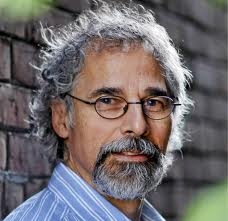By Amy Chen
In late 2019, Ecojustice and Stockwoods LLP initiated a constitutional challenge (“the Application”) against Ontario’s greenhouse gas reduction target on behalf of seven young climate activists (the “Applicants”). Ontario responded with a motion to strike. Mathur et al v Her Majesty the Queen in Right of Ontario was heard via teleconference on July 13, 2020, with judgment reserved. The Applicants were represented by Nader Hasan, the Asper Centre’s upcoming constitutional litigator-in-residence, and Justin Safayeni.
Background
In 2018, the Ford provincial government passed the Cap and Trade Cancellation Act (“CTCA”), repealing the Climate Change Mitigation and Low-Carbon Economy Act (“old Climate Change Act”). Under s. 3(1) of the CTCA, the provincial government “shall establish targets for the reduction of greenhouse gas emissions in Ontario and may revise the targets from time to time”. The new target is set out in the province’s new Environmental Plan: “Ontario will reduce its emissions by 30% below 2005 levels by 2030”. In comparison, the old target (when calibrated) was to reduce the emissions by about 45%.
The public interest Applicants (Sophia Mathur, Zoe Keary-Matzner, Shaelyn Wabegijig, Shelby Gagnon, Alex Neufeldt, Madison Dyck, Beze Gray) in the present case are climate activists between the ages of 13 and 24. The Applicants argue that the new target, as well as the repeal of the old Climate Change Act, violates the rights of Ontario youth and future generations under ss. 7 and 15 of the Charter. Ontario is exacerbating the current climate emergency and threatening the lives of all Ontarians by weakening the province’s target. Canada has an international obligation, under the Paris Agreement, to limit global warming to 1.5 oC above pre-industrial levels and prevent the effects of climate change from becoming irreversible. Ontario’s greenhouse gas emission levels will be too high to meet this obligation even if the target is fulfilled, making the target arbitrary and irrational. The Applicants seek mandatory orders requiring Ontario to set a “science-based” greenhouse gas reduction target for 2030 and to revise its climate action plan accordingly.
Summary of Motion Hearing
The issue of the motion was whether the Application should be struck for disclosing no reasonable cause of action. The hearing primarily revolved around three issues: (1) whether the Application is justiciable, (2) whether the claims within the Application are “inherently speculative in nature”, and (3) whether the Application requires the recognition of positive rights, and if so, whether the Application can be struck on that basis.
(1) Whether the Application is Justiciable
Ontario’s first argument was that the Application is non-justiciable, or that the courts do not have the institutional capacity or legitimacy to adjudicate on this case. Ontario relied on Tanudjaja v Attorney General of Canada, a Charter challenge against the “social conditions” created by the federal and provincial governments that perpetuate homelessness and inadequate housing. The Ontario Court of Appeal found the case to be non-justiciable because there was “no judicially discoverable and manageable standard for assessing… whether [the governments’] housing policy is adequate”. Ontario argued that this Application, like Tanudjaja, asks the Court to assess the soundness of public policy, which is beyond its institutional capacity. The target is a piece of public policy that outlines Ontario’s “aspirations” regarding climate action, not a legally binding commitment. The Applicants are asking Ontario to establish a “science-based” target that would allow for a “stable climate system”; these are not concrete, legal parameters that could be judicially reviewed.
The Applicants argue that the target is a policy made in pursuant to a statutory mandate (the CTCA), which falls under the definition of “law” for the purposes of a Charter challenge (Greater Vancouver Transportation Authority v. Canadian Federation of Students). The Applicants are challenging actual laws, not merely “social conditions”, and seeking relief defined by scientifically knowable standards. These standards can be judicially determined and have been judicially determined by courts in international jurisdictions. Neither complexity nor novelty can justify striking the claim.
(2) Whether the Application is “Inherently Speculative In Nature”
Section 7 Charter claims cannot be premised on speculations about the effects of government action (Operation Dismantle v. The Queen). Ontario’s second argument was that the Applicants’ section 7 claims are speculative and incapable of being proven – the claims assume that the target determines actual emissions, that the target will not change, and that federal policy will not have an effect on Ontario’s emissions.
The Applicants argue that they fully intend to prove their claims based on expert evidence, and whether they would be successful in doing so should be determined at a hearing on its merits. As per Bedford v Canada and Canada v PHS Community Services Society, Charter applicants only have to establish a “real and substantial connection” between the impugned government conduct and the alleged harm. The Applicants are allowed to seek relief for potential future harms even if the government is not the dominant cause of these future harms.
(3)The Issue of Positive Rights
Ontario’s final arguments concerned the government’s positive obligations. First, Ontario does not have any constitutional obligations to keep the old Climate Change Act. Unless there was a constitutional obligation to enact the old legislation, the Ontario legislature is free to repeal and replace it (Barbra Schlifer Commemorative Clinic v. Canada). Second, the Applicant is asking Ontario to take positive steps to combat the adverse effects of climate change, even though neither ss. 15 or 7 of the Charter gives individuals positive rights. Although Gosselin v. Québec left open the possibility that there may be “special circumstances” where positive rights could be recognized, many appellate cases have declined to recognize these positive rights. The lower courts are therefore bound by precedent until the Supreme Court of Canada changes the law (Tanudjaja, trial decision).
The Applicants argue that this case does not require the recognition of positive rights. This case is not merely challenging the repeal of legislation or government inaction, but directly challenging government action. The Ontario government regulates, authorizes, and incentivizes dangerous levels of greenhouse gas emissions through the CTCA and the target. The law is clear that this authorization and regulation is enough to constitute a reasonable cause of action (Dixon v. Director, Ministry of the Environment). The Applicants do not seek a declaration regarding HOW the target is to be achieved, and hence are not demanding any positive obligations from the government. They are merely demanding that the target and the climate action plan be constitutionally compliant. Even if this Application requires the recognition of positive rights, many courts have relied on Gosselin to deny motions to strike. To strike the claim at this stage would freeze section 7 rights in a manner that is contrary to the “living tree” constitutional interpretive principle.
What Next?
The outcome of this motion will serve as a critical turning point in the fight for climate justice by answering one key question: Can the provincial government be held legally accountable for its inadequate climate action plan? In an interview with the Asper Centre, Mr. Hasan posited that there could be positive outcomes for climate justice whether the claim is struck or not. If the claim is struck, the Applicants would likely appeal the decision; such an outcome would give the appellate courts an opportunity to consider the complex legal issues involved and set a precedent for climate change litigation in Canada. If the claim proceeds, the Applicants would be permitted to present their evidentiary record. A judge would hear “striking and chilling” testimonies regarding the catastrophic effects of climate change and the fact that these effects will become irreversible if drastic action is not taken. As stated by Mr. Hasan: “I feel quite confident that, if we ever get the evidentiary record in front of a judge, the judges are going to want to do the right thing.”
Additional arguments were raised in the parties’ written submissions. Ontario’s arguments are stated in their notice of motion to strike. The Applicant’s arguments can be found in their factum and on their website.
For more information regarding our governments’ ss. 7 and 15 constitutional obligations to address climate change, see the Asper Centre’s UTEA working group publication- “Give our Children A Future: The Moral and Legal Obligations of the Government of Canada to Act on Climate Change”.
Amy (Jun) Chen is a 1L JD Candidate at the Faculty of Law and is the Asper Centre’s current summer Research Assistant.


 is a partner at Stockwood Barristers in Toronto. He practises criminal, regulatory and constitutional law at the trial and appellate levels. He has an expertise in digital privacy law and search and seizure law, and has appeared in many of the leading cases in this area.
is a partner at Stockwood Barristers in Toronto. He practises criminal, regulatory and constitutional law at the trial and appellate levels. He has an expertise in digital privacy law and search and seizure law, and has appeared in many of the leading cases in this area.